History
History of Musashi University
|
1921
|
Nezu Scholarship Society founded
|
|
1922
|
Musashi High School, the first seven-year high school in Japan and forerunner of Musashi University opened
|
|
1949
|
Musashi University (Faculty of Economics) in the postwar education system reforms Opening of Musashi Junior High School (April 1949) and Musashi Senior High School (April 1948) established
|
|
1951
|
The Nezu Scholarship Society reorganized into an educational foundation
|
|
1959
|
The Department of Management Studies in the Economics Faculty established
|
|
1969
|
The Faculty of Humanities
(Undergraduate Courses in Western Studies, Japanese Studies and Sociology) The Master's Program in Economics established |
|
1972
|
The Doctoral Program in Economics established
|
|
1973
|
Master's Programs in English Language and Literature, German Language and Literature, French Language and Literature, and Japanese Language and Literature established
|
|
1992
|
The Department of Finance in the Economics Faculty established
|
|
1995
|
The Master's Program in Sociology established
|
|
1997
|
Doctoral Programs in Western Studies, Japanese Studies and Sociology established
|
|
1998
|
The Faculty of Sociology, The Department of Comparative Culture in the Humanities Faculty established
|
|
1999
|
The Doctoral Program in Management and Finance established
|
|
2002
|
Musashi International Studies Center (ISC) established
|
|
2003
|
EAS Program established
|
|
2004
|
The Department of Socio-Media Studies in the Sociology Faculty established
|
|
2005
|
Study Abroad Preparation Courses started
|
|
2015
|
Parallel Degree Programme of University of London and Musashi University started
|
|
2017
|
Global Studies Courses and Global Data Science Courses started
|
Photo
-
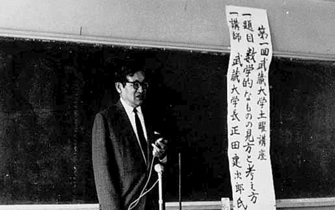
Noted mathematician and former Musashi University president Kenjiro Shoda giving a Saturday lecture -
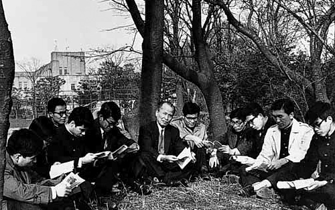
Seminar being given on campus -
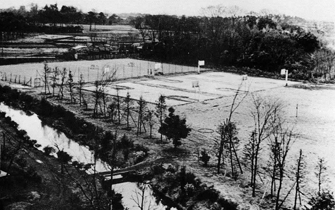
Tree planting along the Susugi River during the University’s early days -
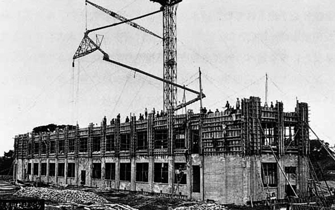
Construction of school building -
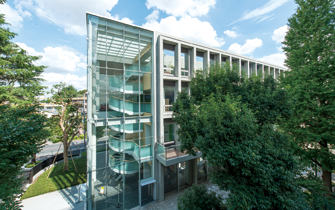
Current campus (Building 1)
Musashi University Founder
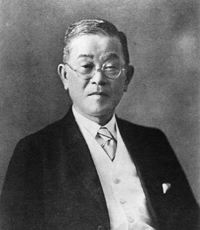
Musashi University Founder,
Kaichiro Nezu Sr.,
Known as the “Railway King”
Kaichiro Nezu Sr.,
Known as the “Railway King”
Kaichiro Nezu Sr. (1860.1940), who founded the University’s predecessor, Musashi High School, was known as the “Railway King” for his involvement in building many of Japan’s railroads as president of the Tobu Railway Company. In addition, Nezu was instrumental in restructuring various Japanese companies. In line with his belief in giving back to society, Nezu was passionate about promoting education and culture.
Nezu’s opportunity to make a social contribution came in 1909 after joining the Honorary Commercial Commissioners of Japan to the United States of America led by Eiichi Shibusawa. Nezu adopted the doctrine of using business profits for social improvement after meeting John D. Rockefeller, Sr. Nezu was also known as an art lover and tea ceremony practitioner. Following his death, the Nezu Museum was established in Aoyama, Tokyo in accordance with his will to exhibit his personal art collection and promote Japanese art worldwide. The Nezu Museum was opened at his private residence, which features a spacious Japanese garden as well as a first-rate collection of Japanese and Asian art in a broad array of styles.
